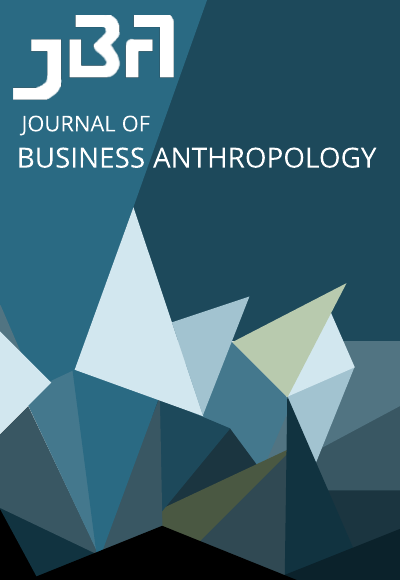Anthropologist in Advertising Agencies: Mediating Structures of Power and Knowledge Capital by Managing Relationships
DOI:
https://doi.org/10.22439/jba.v6i1.5318Keywords:
advertising, consumer research, fieldwork, frame analysis, relationship managementAbstract
This essay discusses how working from within an advertising agency as an anthropologist yields particular advantages in terms of presenting anthropological insights and gaining access to information that one would not have been privy to, compared to a study of advertising from the outside. Working from within an agency affords access not only to forms of objective data and consumer research documents that are less accessible from the outside, but also to forming critical relationships and subjective associations with clients that produce knowledge practices and situate information in authoritative positions of power from within. I draw on fifteen years of experience as a corporate anthropologist working within and among relationships in advertising which define, produce and sustain various structures of power and knowledge capital that orient insights and information in critical ways.
Downloads
Published
Issue
Section
License
Authors who publish with this journal agree to the following terms:
- Authors retain copyright and grant the journal right of first publication with the work simultaneously licensed under a Creative Commons Attribution License that allows others to share the work with an acknowledgement of the work's authorship and initial publication in this journal.
- Authors are able to enter into separate, additional contractual arrangements for the non-exclusive distribution of the journal's published version of the work (e.g., post it to an institutional repository or publish it in a book), with an acknowledgement of its initial publication in this journal.
- Authors are permitted and encouraged to post their work online (e.g., in institutional repositories or on their website) prior to and during the submission process, as it can lead to productive exchanges, as well as earlier and greater citation of published work (See The Effect of Open Access).



